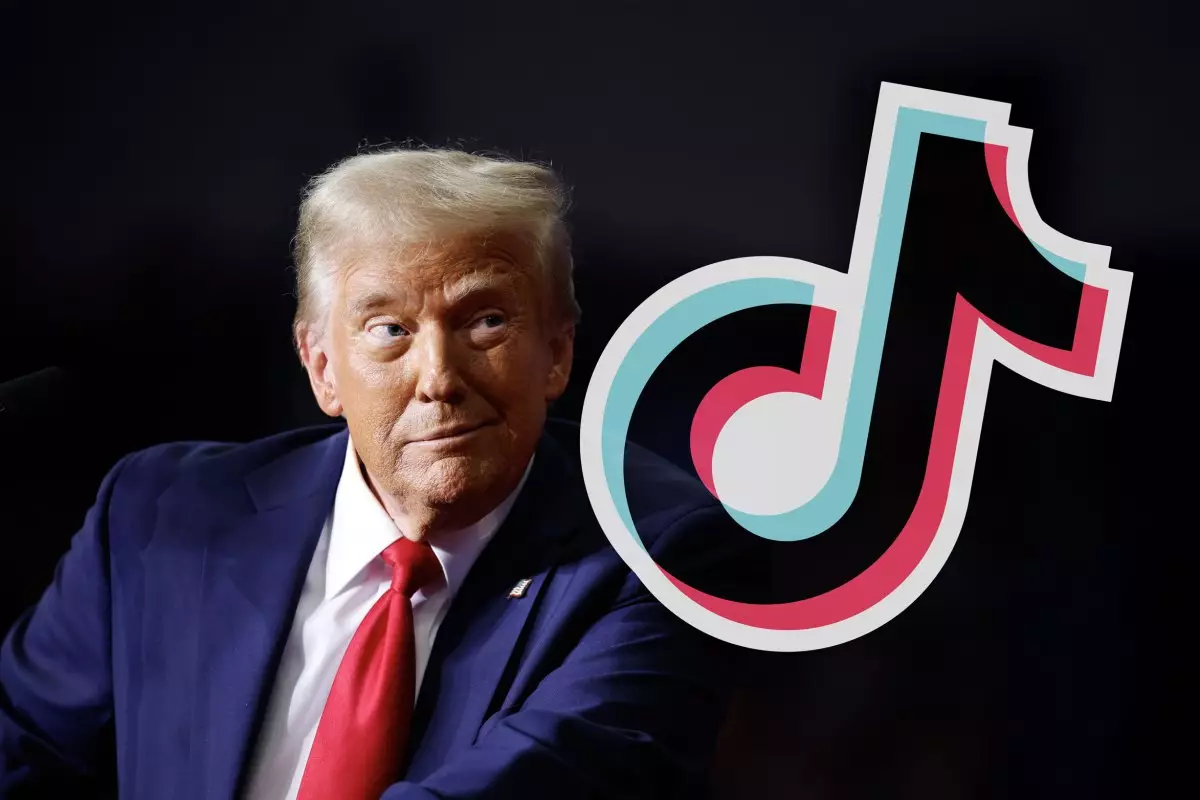In a surprising turn of events, former President Donald Trump has granted TikTok a 75-day extension before a previously announced ban could take effect. This development, outlined in a post on his Truth Social platform, comes one day before the deadline was set to surprise the social media giant and its vast user base. The circumstances surrounding this extension reveal not only Trump’s ongoing influence on national technology policy but also the complexities of U.S.-China relations in a digital age. It illustrates how the intersection of politics, technology, and economics can yield unexpectedly powerful outcomes.
Negotiation over Ban: A Long-Standing Game
This isn’t the first time that Trump has delayed the ban on TikTok, which is owned by the Chinese company ByteDance. Initially mandated by legislation enacted during Joe Biden’s administration, the maneuvering over TikTok has been characterized by a series of give-and-take episodes reminiscent of a high-stakes poker game. Trump’s assertion that his administration is “working very hard on a Deal to SAVE TIKTOK” suggests a belief in the viability of negotiations that could benefit both the American economy and national security. His phrasing indicates a sense of urgency, a desire not just to keep TikTok operational but to secure what he terms “necessary approvals,” hinting at a careful orchestration of political and economic interests.
Investor Interest: The Players in the Game
Several prominent investors have reportedly turned their sights on TikTok, reinforcing the platform’s value within the digital marketplace. Notable names, including Oracle and Walmart, have emerged as front-runners fascinated by the lucrative potential of social media’s young demographic. This interest reflects a broader trend where major corporations are keen to strengthen their foothold in the tech sector, should a deal materialize. However, TikTok’s fate isn’t merely in the hands of U.S. investors; the Chinese government holds a critical card, as any deal awaits their approval. This intricate balancing act shines a light on how intertwined economic interests and international relations have become in the tech industry.
Tariffs and Digital Sovereignty: A Complex Grid
While Trump’s extension of the TikTok deadline aims to navigate potential backlash from both users and investors, it’s also set against the backdrop of tension-laden trade relations with China. Just days before the TikTok extension, Trump imposed staggering 34% tariffs on Chinese goods, a move intended to apply pressure. The former president’s remarks about reducing tariffs to foster a TikTok deal underlie the delicate diplomacy at play. Tariffs have historically been employed as economic leverage, and this approach marks an assertion of the U.S.’s desire for favorable outcomes—both in terms of trade and technological sovereignty.
Use of Social Media: A Strategic Broadcast
Trump’s choice to announce the extension via Truth Social also signifies a shift in how political discourse is navigated within modern contexts. With traditional media outlets frequently at odds with his administration’s messaging, this platform becomes a primary avenue for broadcasting crucial decisions. The strategic use of social media to communicate policies and updates reflects not only an adaptation to contemporary communication channels but also a keen awareness of the audience—namely, TikTok users—who may see the extension as a sign of goodwill. It effectively positions Trump as the protector of their platform, playing to his base and influencing public sentiment.
A Balancing Act of Interests
While many U.S. consumers are simply hoping to continue their engagement with the app, the broader implications of the deadline extension underscore a precarious balancing act between national security concerns and the thriving tech economy. Trump’s dedicated emphasis on what he deems fair trade coupled with ongoing negotiations showcases the intricate dance of maintaining economic vitality while safeguarding digital landscapes. Whether or not a concrete deal emerges remains uncertain, but the events surrounding the TikTok extension provide a vivid portrait of how the digital age complicates traditional political frameworks.
Through a lens of both ambition and pragmatism, the situation continues to unfold, highlighting the powerful narratives shaped by a shared interest in technological advancements while grappling with the tenets of geopolitics. The ticking clock on this intricate deal will undoubtedly attract further scrutiny and debate as the deadline approaches, keeping both investors and users on edge.

